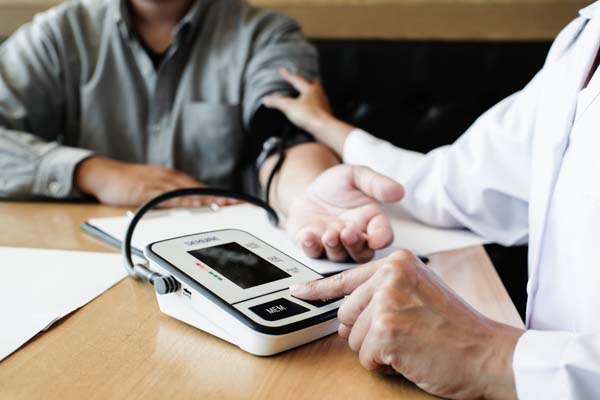Diabetes TreatmentIrvine, CA
Diabetes is a common condition affecting children and adults. If left undiagnosed or untreated, diabetes can have disastrous effects on the body. Even patients with diagnosed diabetes must ensure they receive proper care to avoid complications.
At Harbor Medical Clinic and Wellness Center, we offer diabetes treatment and management. Our team can help patients learn how to monitor and manage their condition at home. To learn more about a procedure or schedule an appointment, call 1-949-551-1234 today.
Understanding Diabetes
Diabetes refers to a group of metabolic diseases that manifest when the affected individual’s blood glucose, or blood sugar, is too high. A normally functioning pancreas releases insulin to assist the body in storing and using sugar and fat intake. However, in diabetic patients, the pancreas produces little to no insulin, or the body responds inappropriately to insulin.
There are three main types of diabetes: type 1, type 2, and gestational diabetes. Type 1 diabetes, also called juvenile diabetes, occurs when the body cannot produce insulin. As a result, those affected are dependent on taking artificial insulin daily. Type 2 diabetes, the most common type of diabetes, influences how the body uses insulin. Gestational diabetes occurs in pregnant women when the body may become less sensitive to insulin.
Common Causes of Diabetes
Different types of diabetes have different causes. While experts have yet to determine the exact cause of type 1 diabetes, it is generally believed to occur due to a combination of environmental factors and genetic susceptibility. The same is true for type 2 diabetes, which is also strongly associated with being overweight.
Gestational diabetes is caused by hormonal changes brought on by pregnancy. As the placenta produces extra hormones to sustain the pregnancy, the body’s cells become more resistant to insulin. The pancreas will typically produce excess insulin to compensate for this resistance. If this is insufficient, then gestational diabetes will occur.
Symptoms of Diabetes
After consuming food, the body works to convert it into glucose for energy. The body then transports the glucose into the blood, where proper insulin production is necessary for the body to absorb the glucose. Diabetic patients have a problem both with insulin production and glucose absorption, leading to high glucose levels in the blood (or high blood sugar). This is responsible for the symptoms of diabetes, including:
- Blurred vision
- Increased thirst
- Increased urination, especially at night
- Weight loss (less common)
If left untreated, diabetes can cause severe dehydration and a feeling of dullness or light-headedness. In severe cases, diabetes can cause diabetic ketoacidosis (DKA), which may cause abdominal pain, nausea, and vomiting. This condition can also cause more severe symptoms, such as mental dullness, partial paralysis or weakness of the body, seizures, and even a coma.
Diagnosing Diabetes
As diabetes has such a wide array of risk factors, a primary care doctor will make a detailed assessment of the patient’s entire medical history. They may note any symptoms or weight changes a patient reports experiencing. They will also consider the patient’s chronic conditions and medication schedule, if applicable. A random blood glucose test is a typical procedure when it comes to diagnosis. This process involves taking a small drop of the patient’s blood to measure the amount of glucose present. If it exceeds a certain threshold, then a diabetes diagnosis is likely.
Patients may be tested for diabetes, even if their symptoms are not very severe or noticeable. Other diagnoses include A1C tests, fasting plasma glucose tests, and oral glucose tolerance tests. In an A1C test, the doctor takes a blood sample to measure the blood sugar levels. An oral glucose tolerance test involves an oral administration of pure glucose, followed by a blood sugar test two hours later. Finally, a fasting plasma glucose test requires the patient to fast overnight before testing their blood sugar levels.
Treatments for Diabetes
Diabetes treatment is crucial in managing and maintaining proper insulin levels. Failure to treat diabetes properly can lead to severe health consequences. Luckily, with the right lifestyle change program, it is reversible. Regardless of whatever type of diabetes a person may have, diabetes increases the risk of developing a wide variety of serious health problems. These include diseases affecting the heart, blood vessels, eyes, kidneys, nerves, and teeth. Diabetes also increases the risk of developing infections. In addition, it is a leading cause of cardiovascular disease, blindness, lower limb amputation, and kidney failure.
Though type 1 diabetes cannot be prevented, lifestyle modification with physical activity and a healthy diet can help prevent the onset of type 2 diabetes. Diabetes treatment typically involves insulin therapy and regular monitoring. We encourage patients to regulate their blood sugar levels depending on their diabetic patterns and incorporate healthy foods and exercise into their daily routine.
Schedule a Visit Today
Consultations and treatments for diabetes are available at our office. The Harbor Medical Clinic and Wellness Center team looks forward to treating you and helping you learn the tools to manage your condition at home. Call our office at 1-949-551-1234 to learn more or schedule an appointment.
Frequently Asked Questions About Diabetes Treatment
What can a physician do to treat diabetes?
Suppose your blood sugar is extremely high and there are severe symptoms at the time of your arrival at our office. In that case, the primary care physician will give you medication to immediately lower your blood sugar and IV fluids to rehydrate you. You may also be prescribed medications to keep your blood sugar under control and receive recommendations on how to better manage your condition.
What is prediabetes?
Patients with prediabetes have a blood sugar level that is higher than average but not yet high enough to be considered type 2 diabetes. Though it can be reversed with lifestyle changes, those with prediabetes may already be experiencing the long-term damage of diabetes. As such, consulting with a physician is key to protecting your health.
What is a good diet for diabetics?
A healthy diet is key to managing blood sugar, weight, and heart disease risk factors. A diet rich in extra calories and fat will inevitably cause blood sugar levels to rise, leading to severe conditions like hyperglycemia. Those affected by diabetes or prediabetes should focus on fiber-rich foods, fish, healthy carbohydrates, and “good" fats.
Is gestational diabetes a permanent condition?
As mentioned earlier, gestational diabetes is a natural result of changing hormone levels during pregnancy. It is usually a temporary condition that subsides once hormone levels have returned to normal after the mother has given birth.
What are the risk factors for diabetes?
Risk factors can vary depending on the type of diabetes. However, specific populations are more likely to develop diabetes than others. These include persons who are overweight or obese, have a family history of diabetes, have had gestational diabetes in the past, have given birth to a baby weighing more than nine pounds, have high blood pressure, or have abnormal cholesterol. Leading a physically inactive lifestyle can also raise one’s risk.
Contact Us
Harbor Medical Clinic and Wellness Center is located at 33 Creek Rd., Building C, Suite 310 Irvine, CA 92604.





